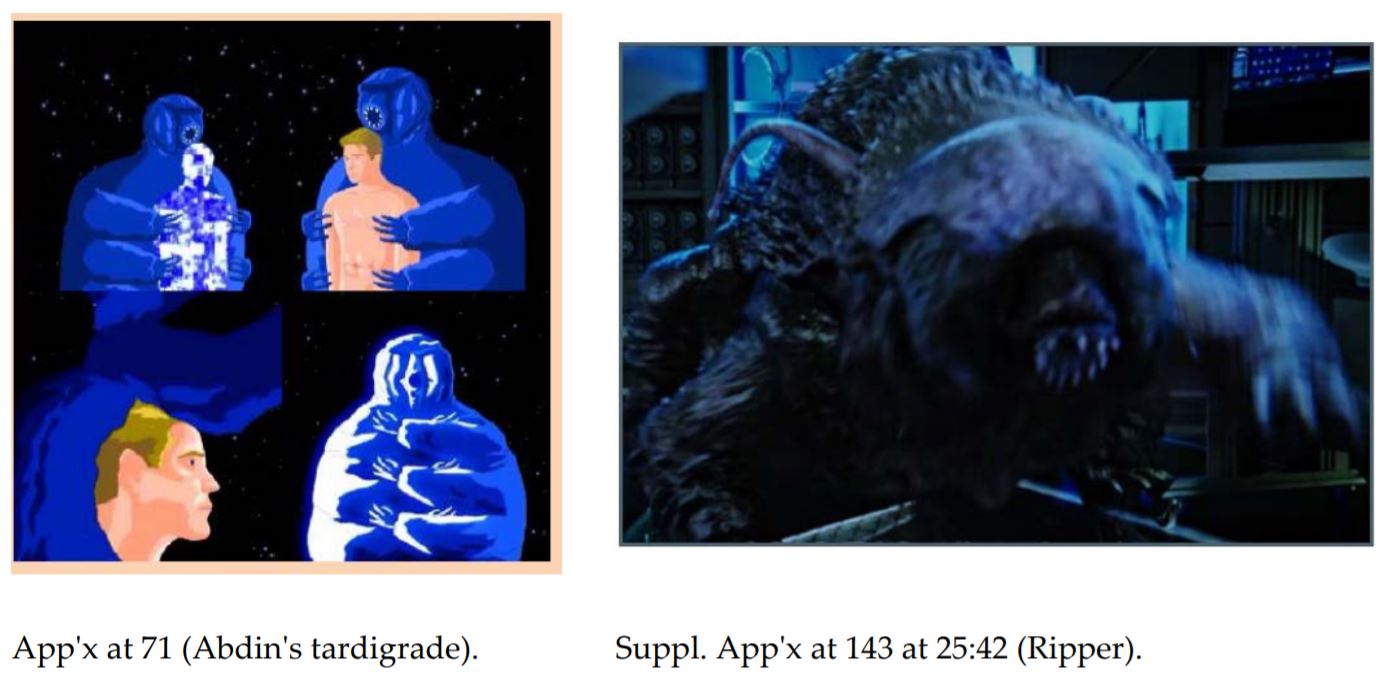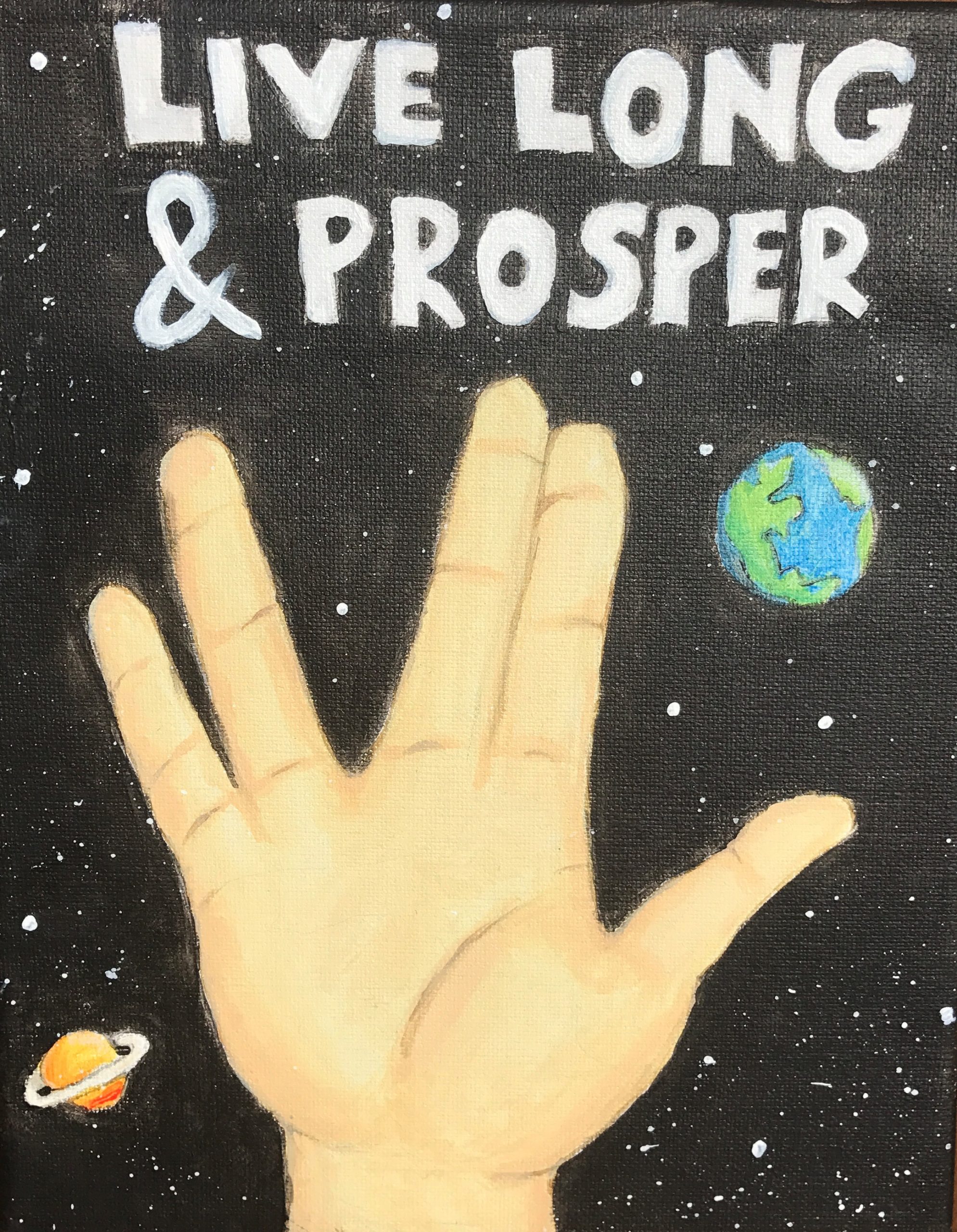Want to Write a Story About Tardigrades in Space? Make It So!–Abdin v. CBS
This is a fun opinion for four reasons. First, it deals with the always-interesting idea/expression dichotomy. Second, it deals with tardigrades, the cute microscopic “water bears” with extraordinary physical properties. Third, it deals with Star Trek, one of my favorite series. And fourth, the opinion incorporates numerous easter eggs for Star Trek fans.
The plaintiff created a videogame called Tardigrades (nee Epoch), which involved a tardigrade traveling in space. He complained about a 3-episode arc in Star Trek: Discovery, which included a space tardigrade named “Ripper.” Both narratives rely on well-documented scientific facts about tardigrades, such as their ability to survive in adverse conditions.
The court says “scientific facts are not copyrightable because they are part of the public domain and thus do not provide a basis for an infringement claim,” including their ability to survive in space. The court adds:
the extension of tardigrades’ known ability to survive in space into the ability to travel in space is an unprotectible idea….By permitting Abdin to exclusively own the idea of a space-traveling tardigrade, this Court would improperly withdraw that idea from the public domain and stifle creativity naturally flowing from the scientific fact that tardigrades can survive the vacuum of space.
The depictions of Adbin’s tardigrade and Ripper also materially differ:
Scenes a faire also applies: “the science fiction genre typically involves ‘stock themes,’ such as space travel, supernatural forces, war games, alien discovery, and adventuring through space. For example, themes of spaceships and space exploration have been commonplace in the science fiction genre since at least the early 1900s…alien encounters are also a generic theme that routinely appears throughout the science fiction genre…copyright also does not protect generic themes and storylines involving aliens or advanced technology.” Thus:
Here, we have little trouble concluding that many of the alleged similarities in the parties’ works (e.g., the use of a space ship, space travel, and alien encounters) “are unprotectible elements that follow naturally from a work’s theme rather than from an author’s creativity.” Likewise, the basic idea of a tardigrade traveling in space is a natural extension of the tardigrades’ known ability to survive in space. Similarly, the idea of a tardigrade facilitating space travel is also unprotectible.
The court considered some superficial overlaps in the characters:
While the characters do share some traits such as hair color, race, and profession, the Videogame’s many characters have a wide range of physical traits and the suggestion that a copyright infringement claim can be based on such generic and common characteristics is “highly illogical.”
The court also discussed total concept-and-feel. The videogame is more about solving puzzles in space; the TV series draws upon and extends the rich Star Trek universe.
The court concludes:
after extracting the unprotectible elements from Abdin’s Videogame — the scientific facts, general ideas, science fiction themes constituting scènes à faire, and generalized character traits — we hold that the Videogame and Discovery are not substantially similar because the protectible elements, as described above, are markedly different.
The opinion doesn’t break a lot of new doctrinal ground on the idea/expression dichotomy. Still, it’s a fun read, and it’s nice to see the court tell Star Trek: Discovery to:
🖖🖖🖖
Some Star Trek Easter Eggs in the Opinion
A few of the gratuitous allusions in the opinion:
- “in the latest round of Star Trek-related litigation, we are asked to boldly go where no court has gone before”
- “as aptly put by Spock and Captain James T. Kirk in Star Trek II: The Wrath of Khan (Paramount Pictures 1982), ‘[t]he needs of the many outweigh the needs of the few . . . or the one.'” (TIL: there is literally a book chapter on this line).
- “Captain James T. Kirk, Star Trek: The Return of the Archons, Star Trek: The Original Series (1967) (“Without freedom of choice, there is no creativity.”).”
- “the suggestion that a copyright infringement claim can be based on such generic and common characteristics is “highly illogical.” Spock, Star Trek: The Omega Glory, Star Trek: The Original Series (1968).”
Plus, five links to StarTrek.com.
Spock gets 6 references in the opinion and Captain Kirk only gets 3. (Picard gets none). Spock’s father Sarek gets 2 references. Klingons are referenced 13 times and Vulcans 6 times.
I got the strong impression that the judge and clerks enjoyed working on this opinion.
Case citation: Abdin v. CBS Broadcasting Inc., 2020 WL 4743018 (2d. Cir. August 17, 2020)



Pingback: News of the Week; September 2, 2020 – Communications Law at Allard Hall()